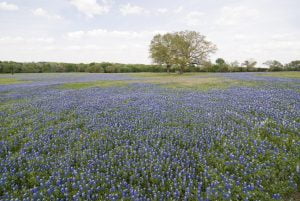
In the heart of Denton, Texas, lies a treasure trove of natural beauty – the environmentally sensitive areas (ESAs) that play a crucial role in preserving the city’s ecological balance. These areas, which include parks, wetlands, and water bodies, are essential for maintaining biodiversity, protecting wildlife habitats, and enhancing the overall quality of life for Denton residents. In this article, we will delve into the significance of these environmentally sensitive areas, explore the legislation and protection they require, examine the major ESAs in Denton, and discuss the threats they face as well as the ongoing conservation efforts within the community.
Understanding Environmentally Sensitive Areas (ESAs)
ESAs refer to regions with unique ecological characteristics that require special attention and protection to maintain their environmental value. These areas are crucial for preserving biodiversity, supporting wildlife habitats, and providing ecosystem services. Denton, with its rich natural heritage, boasts a considerable number of ESAs that contribute to the overall ecological health of the city.
One of the key aspects of ESAs is their ability to act as natural buffers against environmental disturbances. These areas can help mitigate the impacts of climate change, provide resilience against natural disasters, and offer a sanctuary for species facing habitat loss. By safeguarding ESAs, Denton not only protects its natural landscapes but also enhances its resilience to environmental challenges.
Definition and Importance of ESAs
Environmentally sensitive areas are defined as geographical locations that possess certain characteristics, such as high biodiversity, rare or endangered species, unique ecosystems, or critical water bodies. These areas serve as a refuge for native plants and animals, benefiting not only the local ecosystem but also the entire community. By understanding the value of ESAs and their role in maintaining ecological balance, Denton residents can appreciate the necessity of protecting and conserving these areas.
Moreover, ESAs play a crucial role in supporting the health and well-being of communities. They offer recreational opportunities, improve air and water quality, and contribute to the overall aesthetic appeal of the city. By promoting access to these natural spaces, Denton can enhance the quality of life for its residents and foster a sense of environmental stewardship among its population.
Identifying ESAs in Denton
Denton’s esteemed ESAs have been identified through extensive research, forestry surveys, and ecological studies. These investigations have pinpointed areas that are home to rare plant species, native wildlife, and complex ecosystems with high ecological integrity. Parks, natural reserves, wetlands, and water bodies all contribute to the diverse range of ESAs within the city.
Through ongoing monitoring and conservation efforts, Denton aims to ensure the long-term protection of these valuable ESAs. By engaging in sustainable land management practices, promoting public awareness, and fostering partnerships with local conservation organizations, Denton can continue to be a steward of its environmentally sensitive areas for future generations to enjoy and benefit from.
Legislation and Protection of ESAs in Denton
To safeguard Denton’s ESAs from encroaching urbanization and other threats, the local government has implemented legislation and regulations aimed at their preservation.
ESAs, or Ecologically Sensitive Areas, in Denton are vital ecosystems that support a diverse range of plant and animal species. These areas serve as natural habitats, providing food, shelter, and breeding grounds for wildlife. Preserving ESAs is crucial not only for maintaining biodiversity but also for ensuring the overall health and resilience of Denton’s environment.
Local Environmental Laws and Regulations
Denton has a robust set of environmental laws and regulations that govern the use and development of land in ESAs. These laws ensure responsible development practices, minimize disturbances to natural habitats, and restrict activities that could harm the ecological balance of these areas.
These regulations include guidelines for sustainable land management, water conservation measures, and wildlife protection protocols. By adhering to these laws, developers and landowners contribute to the long-term sustainability of Denton’s natural landscapes and help mitigate the impact of human activities on fragile ecosystems.
Role of Government in ESA Protection
The government plays a pivotal role in the protection of ESAs by enforcing regulations, conducting regular inspections, and monitoring compliance. Additionally, the allocation of resources towards the preservation of ESAs reflects the government’s commitment to maintaining the city’s natural heritage for generations to come.
Government agencies work in collaboration with environmental organizations, local communities, and scientific experts to develop comprehensive conservation strategies for ESAs. These efforts involve habitat restoration projects, public education campaigns on environmental stewardship, and research initiatives to better understand the ecological value of these areas.
Major ESAs in Denton
Denton’s ESAs encompass a wide variety of natural landscapes that captivate residents and visitors alike.
Parks and Natural Reserves
The city of Denton boasts an impressive array of parks and natural reserves, providing residents with recreational spaces while preserving the natural environment. Places such as the Clear Creek Natural Heritage Center, Ray Roberts Lake State Park, and the Lewisville Lake Environmental Learning Area offer visitors a chance to reconnect with nature and appreciate the diverse ecosystems within Denton.
Wetlands and Water Bodies
The wetlands and water bodies scattered throughout Denton are essential components of the city’s ecological infrastructure. Home to migratory birds, aquatic species, and countless native plants, these areas act as filters for water drainage and provide invaluable habitats for numerous wildlife species.
Threats to Denton’s ESAs
Despite their importance, Denton’s ESAs face numerous threats that require immediate attention and action to mitigate their impact.
Urban Development and its Impact
Rapid urbanization poses a significant threat to Denton’s ESAs. As the city expands, the demand for land increases, often resulting in the conversion of natural habitats into urban landscapes. This encroachment not only disrupts the delicate balance of ecosystems but also limits the availability of adequate habitats for numerous plant and animal species.
Climate Change and ESAs
Climate change is another pressing concern for Denton’s ESAs. Rising temperatures, altered precipitation patterns, and increased frequency of extreme weather events all have the potential to negatively impact the sensitive ecosystems found within the city. For instance, changes in water availability and temperature can harm aquatic species and disrupt the fragile balance of wetland ecosystems.
Conservation Efforts in Denton
To counter the threats facing Denton’s ESAs, various stakeholders, including the local community, organizations, and the government, have joined forces to implement conservation efforts.
Community Involvement in Conservation
Awareness and engagement within the community are vital components of successful conservation efforts in Denton. Through educational programs, volunteer opportunities, and outreach initiatives, residents can actively participate in the protection of ESAs, promoting a sense of stewardship and cultivating a culture of environmental responsibility.
Future Plans for ESA Protection
Looking ahead, Denton has ambitious plans for the protection and conservation of its ESAs. These include increasing the number of protected lands, restoring degraded habitats, and implementing sustainable development practices to minimize the impact on sensitive ecosystems. By prioritizing the preservation of ESAs and ensuring their long-term viability, Denton is taking proactive steps to safeguard its natural heritage for future generations.
In conclusion, Denton’s ESAs represent an invaluable asset that contributes to the city’s ecological health and enhances the quality of life for its residents. By understanding the importance of these areas, Denton’s community can actively participate in their protection and conservation. Through legislation, public awareness, and collaboration, Denton is committed to preserving its ESAs, ensuring a sustainable and vibrant environment for generations to come.
As we reflect on the vital role of Environmentally Sensitive Areas (ESAs) in Denton and the collective effort required to preserve them, it’s clear that expert guidance is often needed to navigate the complexities of environmental compliance and conservation. ESE Partners, an environmental consulting firm with a deep commitment to responsibly moving business forward, stands ready to support your endeavors in safeguarding these natural treasures. Whether you’re dealing with stormwater permitting, SPCC planning, wastewater reporting, or seeking innovative solutions for environmental challenges, our team is equipped to provide the expertise necessary for your water compliance needs. With the USACE updating their review process for DA permit applications in the Galveston County District, now is the time to ensure your projects proceed without delay. Request A Proposal today and let ESE Partners be your ally in protecting Denton’s ESAs and contributing to a sustainable future.








